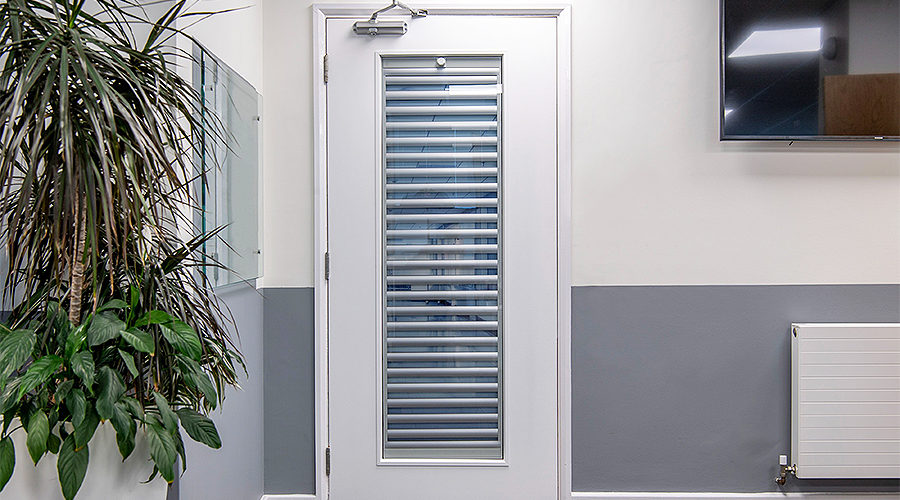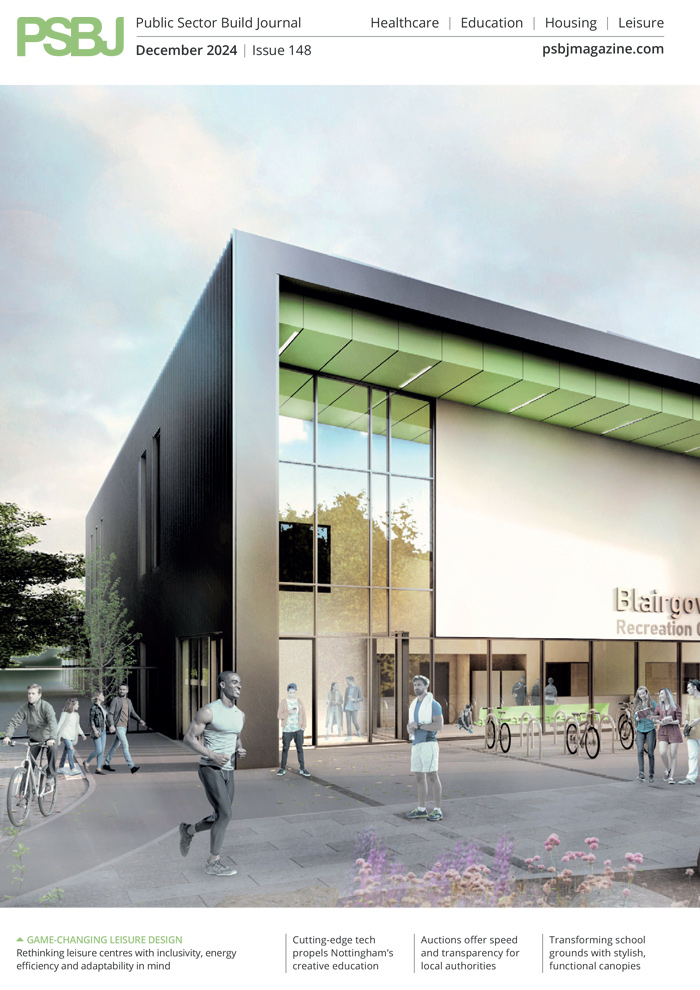With hygiene and longevity key specification priorities, Ian Short, Managing Director of Morley Glass, explains why integral blinds provide the ideal shading and privacy solution for hospitals and other health and social care environments.
Morley Glass
With natural light in buildings being at the core of what makes a building ‘healthy’, it is no surprise that modern healthcare environments are designed to maximise the availability of daylight and its flow throughout internal spaces.
But that has to be properly managed given the need for privacy at various times throughout the day, if not all day in certain cases. And steps have to be taken to ensure adequate shading is provided where required to prevent problems resulting from excessive sunlight, such as glare and overheating.
Whilst curtains manufactured using specialist fabrics and traditional wall, ceiling or window-frame-mounted blinds are typically regarded as the go-to options for providing shading and privacy in individual rooms, the benefits of integral blinds are increasingly being realised.
Integral blinds are Venetian or pleated blinds that sit between the panes of glass in double-glazed units. They are completely encapsulated throughout the window’s design life, making them particularly beneficial for health and social care environments.
Virtually zero cleaning required
The cavity inside a double-glazed unit is free from dirt, germs and dust, which means an integral blind will never become dirty and requires no cleaning of the main blind unit throughout its service life. All that is needed is routine cleaning of the touchpoint of the blind control, whether that is a slider device, knob or winder – and this can be coated in the ‘Sanitized’ antimicrobial coating to help with infection control on certain systems.
Operationally reliable with very limited risk of damage
Integral blinds are essentially a fit-and-forget solution due to their limited cleaning and maintenance requirements, but they can also offer an extremely long service life with the right product specification.
Like any building element, different integral blind systems vary hugely in quality, so it is important to ensure that any proposed solution is built on sound mechanical systems. This is why Morley Glass exclusively partners with a world leader in integral blind technology, Pellini S.p.A., which manufactures ScreenLine systems.
Much like we are encouraged to think about the processor that is inside the laptop we choose, installing integral blinds built on ScreenLine systems represents the highest-quality choice. Remember, long-term value and lowest whole-life cost rarely stems from specifying the cheapest product.
Also consider that, as the blind units are protected by the glass, they are unlikely to be accidentally damaged unless the glass unit is broken. And, should any of the external control elements become damaged, with ScreenLine integral blind systems, they are very quick and easy to repair.
Outstanding aesthetics
Functionality is balanced with aesthetics very well with integral blinds. This helps integral blinds make a positive contribution to the creation of a sensitively-designed healthcare environment that looks clean, fresh and modern and supports care goals.
The systems available from Morley Glass give architects and specifiers a choice of Venetian integral blinds in 10 colours along with pleated blinds in 12 colours. The control systems are also slimline and designed to be virtually unnoticeable. Headrails or sideguides, which feature in certain control systems, are minimal in their appearance to maximise light transmission and visibility through the window when the blind slats are open, or the blind is fully raised.
This makes integral blinds suitable for any space in the healthcare environment, from a consultation room or ward to a day room, waiting room or corridors.
Safe in the event of a fire
Choosing integral blinds for a healthcare environment does not mean compromising on fire safety objectives. Morley Glass offers integral blinds in a specification that features fire-rated glass to offer protection in the event of a fire of 30, 60 or 120 minutes. These fire-rated integral blind units are fully certified to give complete peace of mind to specifiers, hospital managers and building users.
Easy and safe to operate with choice of control systems
Integral blinds manufactured by Morley Glass are available in five different control systems. These range from an elegant and simple pull-cord system, the C System, which can also be operated by a turning knob, to cordless magnetic slider and motorised systems.
Each of these is designed with simplicity in mind, which makes raising, lowering and – in the case of Venetian blinds – tilting of the slides something that staff and patients could do as required, subject to requirements. Visibility and privacy can, therefore, be easily adjusted according to factors such as changing sunlight levels and patient privacy needs.
An anti-ligature knob can also be specified with some systems to offer an extra level of safety in rooms used by vulnerable patients.
A solution designed specifically for healthcare
Whilst any of the Morley Glass integral blind systems can be used for healthcare environments, a new system has recently been developed specifically for this sector. Called ScreenView, this balances the need for patient privacy and observation by allowing very easy switching between the two at different times of the day.
ScreenView has two layers of wide slats arranged in a ladder style, which move up and down to provide an open view for observation or complete closure.
Its design is perfectly suited to door vision panels and other windows that separate a healthcare facility’s communal or public areas from private spaces. Unlike vision panel flaps and externally-mounted blinds, typically used in these applications, the ScreenView blind requires no cleaning or maintenance, other than routine cleaning of the control knob, which is protected with a ‘Sanitized’ antimicrobial coating.










